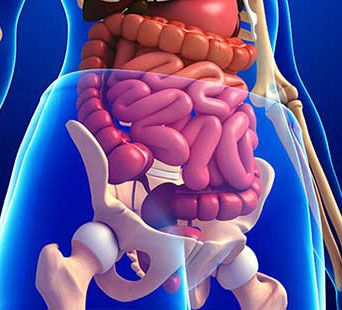Study: Gut Microbes Contribute to Recurrent “Yo-Yo” Obesity

Following a successful diet, many people are dismayed to find their weight rebounding—an all-too-common phenomenon termed “recurrent” or “yo-yo” obesity. Worse still, the vast majority of recurrently obese individuals not only rebound to their pre-dieting weight, they also gain more weight with each dieting cycle. During each round of dieting-and-weight-regain, their proportion of body fat increases, and so does the risk of developing the manifestations of metabolic syndrome, including adult-onset diabetes, fatty liver and other obesity-related diseases.
As a health and fitness professional, you have undoubtedly seen this distressing pattern of yo-yo obesity among some of your clients. Fortunately, researchers are looking for both answers and solutions, and a new study published in the scientific journal Nature suggests that microbes in the intestine could, at least in part, be to blame.
Researchers at the Weizmann Institute of Science in Rehovot, Israel, demonstrated in mice that intestinal microbes—collectively termed the gut microbiome—play an unexpectedly important role in exacerbating post-dieting weight gain, and that this common phenomenon may in the future be prevented or treated by altering the composition or function of the microbiome.
The study was performed by research teams headed by Dr. Eran Elinav of the Immunology Department and Prof. Eran Segal of the Computer Science and Applied Mathematics Department. The researchers found that after a cycle of gaining and losing weight, all the mice’s body systems fully reverted to normal—except the microbiome. For about six months after losing weight, post-obese mice retained an abnormal “obese” microbiome.
“We’ve shown in obese mice that following successful dieting and weight loss, the microbiome retains a ‘memory’ of previous obesity,” says Elinav. “This persistent microbiome accelerated the regaining of weight when the mice were put back on a high-calorie diet or ate regular food in excessive amounts.”
Segal elaborates: “By conducting a detailed functional analysis of the microbiome, we’ve developed potential therapeutic approaches to alleviating its impact on weight regain.”
In a series of experiments, the scientists demonstrated that the makeup of the “obese” microbiome was a major driver of accelerated post-dieting weight gain. For example, when the researchers depleted the intestinal microbes in mice by giving them broad-spectrum antibiotics, the exaggerated post-diet weight gain was eliminated.
In another experiment, when intestinal microbes from mice with a history of obesity were introduced into germ-free mice (which, by definition, carry no microbiome of their own), their weight gain was accelerated upon feeding with a high-calorie diet, compared to germ-free mice that had received an implant of intestinal microbes from mice with no history of weight gain.
Next, the scientists developed a machine-learning algorithm, based on hundreds of individualized microbiome parameters, which successfully and accurately predicted the rate of weight regain in each mouse, based on the characteristics of its microbiome after weight gain and successful dieting. Furthermore, by combining genomic and metabolic approaches, they then identified two molecules driving the impact of the microbiome on regaining weight. These molecules—belonging to the class of organic chemicals called flavonoids that are obtained through eating certain vegetables—are rapidly degraded by the “post-dieting” microbiome, so that the levels of these molecules in post-dieting mice are significantly lower than those in mice with no history of obesity. The researchers found that under normal circumstances, these two flavonoids promote energy expenditure during fat metabolism. Low levels of these flavonoids in weight cycling prevented this fat-derived energy release, causing the post-dieting mice to accumulate extra fat when they were returned to a high-calorie diet.
Further Your Knowledge
Learn more about the microbiome and it’s impact on overall health and well-being:

Study: Fuzzy Thinking? Your Microbiome—and Your Diet—May Be to Blame [Article]
Finally, the researchers used these insights to develop new proof-of-concept treatments for recurrent obesity. First, they implanted formerly obese mice with gut microbes from mice that had never been obese. This fecal microbiome transplantation erased the “memory” of obesity in these mice when they were re-exposed to a high-calorie diet, preventing excessive recurrent obesity.
Next, the scientists used an approach that is likely to be more unobjectionable to humans: They supplemented post-dieting mice with flavonoids added to their drinking water. This brought their flavonoid levels, and thus their energy expenditure, back to normal levels. As a result, even after returning to a high-calorie diet, the mice did not experience accelerated weight gain.
“We call this approach ‘post-biotic’ intervention,” explains Segal. “In contrast to probiotics, which introduce helpful microbes into the intestines, we are not introducing the microbes themselves but substances affected by the microbiome, which might prove to be more safe and effective.”
Recurrent obesity is an epidemic of massive proportions, in every meaning of the word. “Obesity affects nearly half of the world’s adult population, and predisposes people to common life-risking complications such as adult-onset diabetes and heart disease,” says Elinav. “If the results of our mouse studies are found to be applicable to humans, they may help diagnose and treat recurrent obesity, and this, in turn, may help alleviate the obesity epidemic.”
So, what does this mean for you and your clients? This research underscores the importance of a nutrient-rich, minimally processed diet. While many people take probiotics to enhance the health of their gut microbiome, these results suggest that eating foods rich in flavonoids—primarily fruits and vegetables—is a safe and effective way to not only improve intestinal health, but also overall health and well-being.
More Articles
- Certified™: January 2017
ACE-SPONSORED RESEARCH: Does the ACE Integrated Fitness Training® Model Enhance Training Efficacy and Responsiveness?
- Certified™: January 2017
How to Integrate Resistance-exercise HIIT Into Your Clients’ Programs
Contributor
- Certified™: January 2017
5 Things You Might Not Know About Activity Trackers, But Should
Health and Fitness Expert






